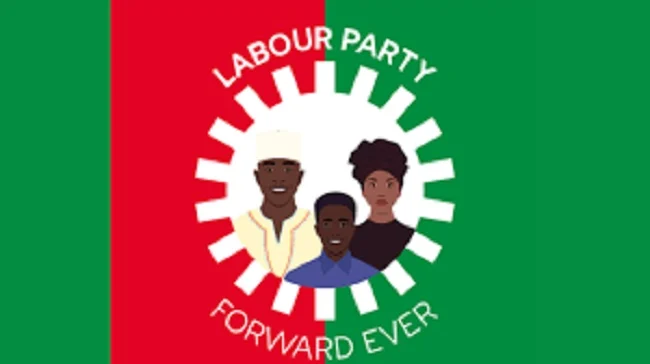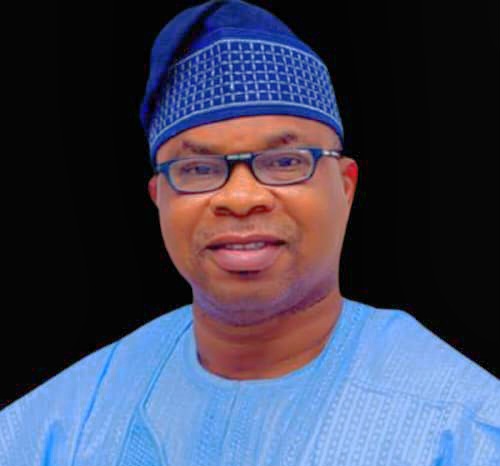Opinion
Is Nigerian Education Becoming A Scam?

IMAGINE spending four years or more in university, attending lectures, hundreds of thousands spent (if not up to millions even in the so-called federal Universities), burning night candles, writing exams and holding onto the promise that education is the key to a better future. Now imagine graduating, only to sit at home jobless, with a degree that feels more like a decorative paper than a passport to success. Across Nigeria, frustration is rising among graduates who followed the “go to school and succeed” script, only to end up stranded. With limited opportunities, rising tuition costs and a system producing a more certificates than careers, one question echoes louder than ever: “Is education not beginning to look like a scam in Nigeria?”
For decades, education in Nigeria was considered the ultimate ladder to success. For generations, education was the dream every parent pushed their children toward, often at the great personal cost, such as selling of property and taking loans to ensure their children had access to schooling. From primary school through to university level, families invested not just money, but hope, believing that a certificate would open doors, provide security and lift entire household out of poverty. The popular belief was simple: “Go to school, graduate, and secure a good job.” This belief wasn’t just preached at home, it was echoed in classrooms, in churches and mosques and through government that praised education as the key to national development.
The system once justified that belief. Back then, a degree was a badge of honour. Graduates were respected and often walked into jobs with banks, oil companies or government agencies. The promise seemed real and for a time it worked. Education was also tied to pride. Being the “first graduate in the family” was a badge of. Communities celebrated academic excellence and government’s scholarships rewarded brilliance. The narrative was strong and simple : “Education equals success”. However, the landscape began to shift. The job market grew smaller, universities became overcrowded and strikes disrupted academic calendars. The number of graduates increased, flooding the labour market faster than the economy could absorb them. Today, the Nigeria job market tells a very different story from the one many were raised to believe. Each year, hundreds of thousands of graduates are released into an economy that cannot absorb them. For many, the job hunt begins with high hopes and ends with frustration. CVs go unanswered, interviews are few and far between, and even when job is found, it is often in a role that barely reflects the years of academic struggles or the qualification earned.
The phrase “overqualified or underqualified”has become too common. Many graduates now work in unrelated field just to survive, such as teaching without a degree in education, doing POS even as a first class graduate in biochemistry e. t. c. And others are stuck in endless internship or NYSC with no transition to permanent employment. One of the most painful realities is the demand for experience. Something fresh graduates are expected to have but rarely get the opportunity to build, as a result, doors stay shut no matter how polished the degree or impressive the grades. Even the much anticipated NYSC year offers no long-term promise. Many Corp members are placed in irrelevant roles and in completion, the majority returns to Jo hunt. Those lucky enough to get retained or have a job often earn peanuts and sometimes, not even enough to cover transport, feeding and rent. The public institutions continue to battle frequent Asuu (Academic staff union of universities) strikes, leading to delayed graduation and disrupted learning. Worse still is the growing mismatch between what is taught in school and what the job market demand. Graduates are increasingly told they lack practical skills, critical skills and digital literacy. But how can students be blamed when they are taught theory in an overcrowded lecture halls, with little or no exposure to field?.
The sad irony? Many of those who once mocked skilled trades or informal works are now embracing tailoring, farming and other skilled trades, not because they gave up on education but because education gave up on them. The long-standing belief in education as the guarantee of success is being reexamined. The gap between academic questions and real-opportunities has widened so much that many now wonder if we have been sold a dream that no longer exists.
The struggle faced by Nigerians
The struggle faced by Nigerian graduates today are not just the result of bad luck or poor decisions; they are deeply rooted in a broken system. At nearly every level. The country’s educational structure is out of sync with the real world. Starting with curriculum. In a world where digital skills, artificial intelligence and creative thinking are shaping the future, many Nigerian universities still teach outdated theories using notes that haven’t changed in decades. Students are handed information and not transformation. They graduate with certificate, not skills, ill-equipped to face the demands of a modern job market. Then, there is the state of the institutions themselves. Public universities are overcrowded and poorly maintained. Students sit on broken chairs in jam-packed lecture halls while laboratories remain empty or under stocked. Access to current learning materials is limited and practical exposure is almost non-existent in many courses. Lecturers, though passionate, are often overworked and underpaid and it reflects in the quality of delivery. Poor funding has only made matters worse. Year after year, education receives a disappointing share of the national budget, far below global standards. Which results in frequent strikes, abandoned infrastructure, demoralized staff and a generation of students who spend more time at home than in class. Employers are looking for skills that universities don’t teach, and there is a little effort to bridge that gap. Internship programmes are rare and often ineffective and job placements care left to chance or connection.
Entrepreneurship, which is often seen or promoted as a solution is not an easy alternative. The environment is tough, access to funding is limited, support systems are weak and the business space is riddled with bureaucracy and inconsistent policies. Loan are difficult to access and start-up policies rarely favour young people without collateral or connections. (See the rest on www.tribuneonlineng.com)
Ultimately, the problem is not just that graduates are jobless, it is that the system that produced them did not prepare them to thrive. With all these challenges stacked up, it is no surprise that the mindset of young Nigerians is changing and fast. 5he belief that education is the only route to success is being questioned more openly than before. These days, the most common advice among youths is not just go to school but to learn a skill, start something and “japa” if possible.
Many students now go through school with one foot in and one foot out, attending classes while also taking tech courses online, learning fashion design, baking or managing small business. Certificates have become a backup plan, not the main plan. For some, school is just a formality to keep parents happy while they focus on what might actually pay the bills.
Social media has played a major role in this shift. It has exposed young people to new paths such as content creation, digital marketing, coding, forex trading, photography e.t.c,these opportunities don’t necessarily require a degree but offer quicker returns. Influencers, tech brose and entrepreneurs have become role models, not PhD holders.
Even among parents, there is quiet shift. Many who once pushed their children to get degrees now emphasize “getting something you can fall back on”. The one-sharp line between “educated” and “skilled” is getting to blur.
For those who still believe in education, it is often no longer about knowledge, it is about migration. A foreign degree is now seen as a ticket to Japan, with better job prospects and quality of life abroad. As a result, studying becomes a means to an end, not the end itself.
What this all shows is that the Nigerian youths are no longer just accepting what they were told. They are questioning, adapting and rewriting the rules. And while the mindset shift might seem rebellious to some, it is simply survival. Because when the system stops working, people stop waiting and start looking elsewhere.
What are the solutions to all these? First, there must be a complete overhaul of the outdated curriculum used in many Nigerian institutions. Education should evolve alongside the demands of the 21st century workplace. Courses must be restructured to include practical skills, digital literacy, Entrepreneurship and critical thinking. Universities, polytechnics and colleges must begin to teach students not just how to pass exams but how to solve real-world problems, adapt and innovate.
Secondly, there should also be a collaboration between academic institutions and the private sector. Employers should be involved in shaping course content to ensure relevance. Internship programmes, mentorship opportunities and graduate trainee scheme must be institutionalized. This would give students early exposure to real work environment and reduce the experience gap that hinders many job seekers today.
The government must prioritize education in its budgeting and planning. Proper funding can improve infrastructure, reduce strikes, increase research opportunities and attract skilled educators. When learning environments are stable and well-equipped, the quality of graduates will improve significantly.
Also, merit must be brought back into the system. Recruitment processes in both the public and private sectors need to be transparent and fair. When opportunities are distributed based on competence and not connection, young people will feel more motivated to build their skills and compete.
While, studying and working abroad offers great benefits, Nigeria must also create an environment worth coming back to. Scholarships, exchange programmes and international collaboration are great, but there must be incentives for young talents to return and build at home. The goal is not to stop migration, but to make staying an equally valuable option.
The system may be flawed, but it is not beyond repair. With collective will and smart decisions, Nigeria can reshape its education sector and open doors of opportunities for its youths. A future where young people no longer feel scammed by the system,but empowered by it. It is a goal we can achieve if we start now.
Tribuneonlineng.com
Opinion
Edo State To Spend N1billion On Armoured Car For Speaker, N4.6billion On Vehicles For Lawmakers

The budget also reveals that N4.6 billion is planned for vehicles for the 25 members of the State House of Assembly.
Reporters’ review of the Edo State approved budget for 2026 shows that N1billion has been allocated to purchase an armoured vehicle for the Speaker of the State House of Assembly.
The budget also reveals that N4.6 billion is planned for vehicles for the 25 members of the State House of Assembly.
Also, N50million is planned for the purchase of refrigerators and other equipment for four directors. The House of Assembly Commission also plans to spend 200 million naira on roof and window replacement for its office building.
Earlier, a civic accountability group, MonITng, raised concerns over the execution of a multi-million-naira education project in Edo State, citing poor quality, procurement irregularities, and a recurring pattern of questionable contract awards.
“A project titled ‘Building of Blocks of Classrooms at Ojah Comprehensive High School, Akoko LGA, Edo State’ with project code ZIP20240448, valued at ₦222,000,000.00, and awarded under the Federal Polytechnic Auchi, Federal Ministry of Education, has raised serious concerns about the quality of execution, contract pricing, and procurement integrity.”
According to MonITng, its team tracked and inspected the project site. “Our team tracked and visited the project site and confirmed that although the classrooms were completed, they were poorly constructed.”
The group further noted: “The structure lacks basic finishing elements such as landscaping, proper drainage, and standard finishing works, all of which should have been included and adequately executed, given the huge sum budgeted for the project.”
It added that “the poor quality of work raises questions about project supervision, contract oversight, and how the allocated funds were spent.”
MonITng also linked the project to a contractor allegedly tied to multiple controversial contracts. “Even more troubling is the pattern we uncovered. The project was executed by Sam Sedi Nig. LTD, a company that has consistently received major contracts facilitated by Senator Adams Oshiomhole.”
The group claimed that “this same contractor handled the abandoned ERGP20245252 project, Construction of Warake to Ivbiaro Road in Owan East LGA, valued at ₦200,000,000.00, which remains incomplete despite significant disbursements.”
“Additionally, the same company implemented a controversial agricultural empowerment programme in Etsako communities, also facilitated by Senator Oshiomhole.”
MonITng alleged that “the recurring involvement of this contractor in multiple projects, combined with substandard delivery and abandoned works, suggests a pattern of procurement manipulation, inflated contracts, and possible diversion of public resources.”
It added that “the situation reflects how public projects, although completed on paper, often fail to deliver a meaningful impact due to corruption, poor supervision, and a lack of accountability.”
Opinion
APC E-registration Plot To Manipulate 2027 Polls – Ogun LP

The Ogun State chapter of the Labour Party has accused the All Progressives Congress of using its ongoing electronic membership registration to allegedly manipulate figures ahead of the 2027 general elections.
In a statement issued on Wednesday, the state chairman of the Labour Party, Chief Oluwabukola Soyoye, claimed that the APC’s e-registration exercise was designed to digitally inflate its membership strength and project a false image of popularity in the state.
Soyoye alleged that the ruling party had resorted to electronic registration because it could no longer mobilise people openly, insisting that the administration of Governor Dapo Abiodun had suffered widespread rejection due to what he described as underperformance.
According to him, the APC’s e-registration, presented as a routine membership drive, was in reality “a political referendum that exposes the deep rejection of Governor Dapo Abiodun and his black-market style of governance by the people of Ogun State.
“The people of Ogun are now wiser. They have deliberately refused to participate in any open, physical APC registration because they know the ruling party has failed them,” Soyoye said.
“That is why the APC has resorted to this so-called electronic registration — a system that allows figures to be fabricated behind closed doors without the presence of real members.”
The LP further alleged that the electronic platform could be used to manipulate membership data, inflate figures and create a misleading narrative of political dominance ahead of 2027
“What we are witnessing is not a genuine political exercise but a fraudulent digital operation designed to manufacture legitimacy for a government that has lost the confidence of the people,” Soyoye added.
Opinion
Let These Campaigns Of Calumny Against AMBO Stop Forthwith

By Kola Odepeju
“Calumny Is Only The Noise Of Madmen” –Diogenes
As Osun state gubernatorial election draws nearer, we’re now at the dawn of the campaigns for the coming election and so as characteristic of Nigeria’s democracy, wrong accusations, blackmails, character assassinations and all manner of negative campaigns aimed at demarketing the most popular candidate with the highest chances of coasting home to victory in a major election of this nature, must surface. And so in our own dear Osun state here this ugly trend has started surfacing. The mudslinging that has started from Governor Ademola Adeleke’s Accord Party’s camp against the APC gubernatorial candidate, Asiwaju Munirudeen Bola Oyebamiji AMBO is ‘normal’ and expected because with the massive support for AMBO across the nook and cranny of the state, it’s crystal clear that he’s the candidate to beat.
As mentioned above, a candidate to beat in any major election is bound to face vilifications by his opponents who see him as a threat and a stumbling block against the success of their own ambitions. Therefore given the nature of our politics in this part of the world, the negative campaigns that have started against AMBO are no surprise. We witnessed the same thing against the incumbent president, Asiwaju Bola Tinubu during the 2023 electioneering campaigns for the office of the country’s president. But against all odds, Asiwaju Tinubu emerged victorious. So as Asiwaju Tinubu emerged victorious in 2023, l have that strong conviction that our own Asiwaju Bola Oyebamiji will also become victorious in the coming August gubernatorial election in the state irrespective of whatever negative campaigns that may come up against him. This is because the AMBO governorship project is divinely ordained.
Amongst other attacks that are still likely to come up against him as we face the election and as the election faces us, we have heard from those who are afraid of losing power that AMBO is the architect of half salaries in Osun (as if he was the governor in that era). We have also heard from them that he’s not youth-friendly. The spokesperson to governor Adeleke, Malam Olawale Rasheed also amplified these two negative points in his latest article aimed at demarketing AMBO. Like I mentioned, the negative campaigns have just started. We are still going to hear more. I wonder why people cannot engage in issues-based campaigns instead of vilifying candidates.
Ambo has told Osun youths the program he has for them. He has promised to take care of them. And as a God-fearing and honest leader who keeps to his words, l believe he will not renege on his promise for the youths and also his promises for Osun people generally. So let those who revel in vilifying a credible candidate like AMBO tell Osun youths the programs they have for them rather than calumniating a visionary and capable leader who has what it takes to deliver the goods. Of course AMBO – being a focused leader – needs not to bother himself about the negative campaigns being circulated against him by his political detractors because William Shakespeare had for long told us that “*Be thou as chaste as ice, and as pure as snow, thou shall not escape calumny*”. And George Washington also mentioned it that “*Silence is the best answer to false accusations*”.
Finally, the Yorubas in their words do say that “maligning the honey doesn’t reduce its sweetness”. No matter the level of negative campaigns against the APC gubernatorial candidate towards the election, it won’t reduce the love the Osun people have for him while it won’t deter them from casting their votes for him in the upcoming gubernatorial election in the state. He will surely come out victorious by the special Grace of God Almighty 🙏. For, Vox populi vox dei. AMBO should continue on the path of issues-based campaigns and close his eyes against malignant talks by those who are already on their way out of power.
● Odepeju, newspaper columnist and political activist, writes from Iragbiji, Osun state.
-

 Politics2 days ago
Politics2 days agoAssembly Confirms Popular Redeemed Pastor As Deputy Governor
-

 Foreign2 days ago
Foreign2 days agoCabinet Reshuffle: President Sacks Finance Minister
-

 Business2 days ago
Business2 days agoJUST IN: 13 Banks May Shut Down In March As CBN Confirms 20 Safe For Recapitalisation Deadline
-

 Politics9 hours ago
Politics9 hours agoBREAKING: “Serial Disrespect” Sparks Drama As Senate Order Arrest Of Tinubu’s Appointee
-

 Politics10 hours ago
Politics10 hours agoOpposition Leaders Urge N’Assembly To Begin Fresh Electoral Act Amendment
-

 Opinion9 hours ago
Opinion9 hours agoEdo State To Spend N1billion On Armoured Car For Speaker, N4.6billion On Vehicles For Lawmakers




